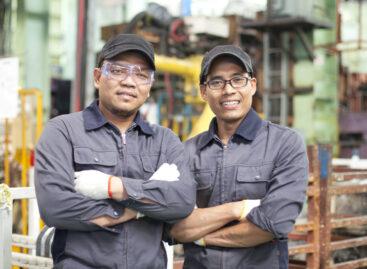The new Randstad Work Monitor is here: a secure workplace and flexibility are both important
According to Randstad’s latest Workmonitor survey of 35,000 workers in 34 markets, the current economic uncertainty has opened up a new dimension in terms of employee priorities and expectations.
Employees today place great value on a workplace that is secure and financially stable, but attracting the best workers requires more than competitive wages and benefits. Work-life balance, flexible working, but also the value system represented by the workplace and the welcoming atmosphere are still of prime importance for employees. With the cost of living rising rapidly, people are turning to their employers for help, but are willing to work overtime, take on second jobs, look for more lucrative work, and even delay their exit from the labor market.
Despite the economic uncertainty, employees do not give up their desire for a healthy balance between work and private life, but only 37% of Hungarians would quit if their job prevented them from enjoying life.
Flexible working is still a particularly important benefit for employees, but only 44% of the Hungarian respondents participating in the survey provide flexibility in the place of work and 38% in terms of working hours.
With geopolitical instability, inflation and a looming economic downturn, more than half of respondents fear that the global economic situation will affect their job security, and more than a third fear losing their job.
In the changing economic environment, employees expect help from employers: a wage increase higher than the normal annual level, a contribution to monthly living expenses or to energy and travel costs or other daily expenses.
In Hungary, above the global average, employees are willing to take on a second job (34%) or work overtime (30%) in order to keep up with the rising cost of living, and all age groups are forced to do so.
80% of domestic respondents (70% globally) said that their financial situation does not allow them to retire when they want. In
Hungary, 46% of respondents want to retire before the age of 60, but 40% think that this will only happen when they are 65-69 years old.
Related news
Related news
MOHU: 5,200 return points are in operation, but 47 larger settlements still do not have RE points – public “enema” machines may be introduced
🎧 Hallgasd a cikket: Lejátszás Szünet Folytatás Leállítás Nyelv: Auto…
Read more >GDP growth in OECD member countries slowed to 0.3 percent in the last quarter of last year
🎧 Hallgasd a cikket: Lejátszás Szünet Folytatás Leállítás Nyelv: Auto…
Read more >








